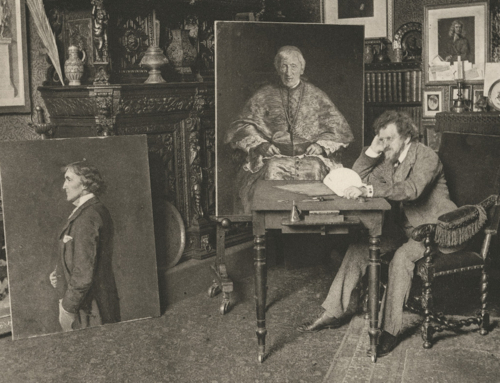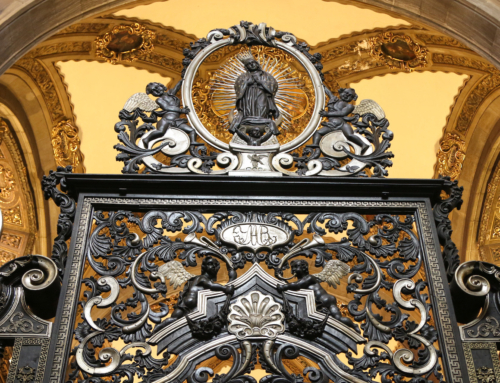“I die the king’s good servant, but God’s first.” History records these as the last words of St. Thomas More. The former Lord Chancellor under Henry VIII, St. Thomas More lost his head to the axe of the public headsman on the banks of the Thames River in 1535 for refusing to deny his Catholic faith and acknowledge the king as the supreme leader of the Church in England. Tomorrow we celebrate his feast, along with that of another Englishman who preceded him in martyrdom, St. John Fisher.
St. Thomas More was a man of priorities. A lawyer by training, the “Man for All Seasons” was also steeped in knowledge of literature, language, and rhetoric. While he was gifted with a tremendous talent for secular affairs, St. Thomas More never sought success and advancement at the cost of spiritual growth. For St. Thomas More, his relationship with God was first. All other matters were to follow behind.
Our country’s founding document reflects something of this English saint’s ordering of priorities. The Constitution ranks religious liberty as the first freedom found in the First Amendment. It is fitting then, that the bishops of the United States have chosen the vigil of tomorrow’s feast to mark the beginning of the national observance of a ‘Fortnight for Freedom.’
The ‘Fortnight for Freedom’ is designed by our bishops to call special attention to our inalienable right to religious liberty. Recent threats to religious freedom that have surfaced in the United States over the last several months have made the call for a collective response to this situation particularly appropriate. While the Obama mandate (which would require religious institutions and other private employers to provide sterilization and contraceptive coverage to women in violation of their respective consciences) has received the most attention, other events reflect a growing hostility toward religion on the part of various levels of government. Actions of the local and state governments of various jurisdictions to exclude Catholic Charities from providing adoption and foster care services present just one example.
In light of these recent events, it is important for us as a nation to become more vigilant in securing our Constitutional right of religious freedom lest we forget the lessons learned from the past. St. Thomas More’s death was for England a self-inflicted wound that represented the loss of perhaps the country’s most talented citizen. The founders sought to avoid the mistakes made by the leaders of the country from which they chose to separate. The first lines of our Constitution reflect the wisdom gained from past mistakes.
It is especially regrettable for us as Americans then that governments at various levels throughout the U.S. are today engaged in intensified efforts to make it impossible for our communities to harness the public benefits of a lively Catholic faith. The “Fortnight for Freedom,” which spans fourteen days from today (June 21) through Independence Day, is a special time for us to contribute to the reversal of the recent trend that seeks to undo the learned wisdom recorded in the first lines of our nation’s charter document.
Together let us pray and strive to protect the freedom that allows our lives to reflect our true priorities.
✠






